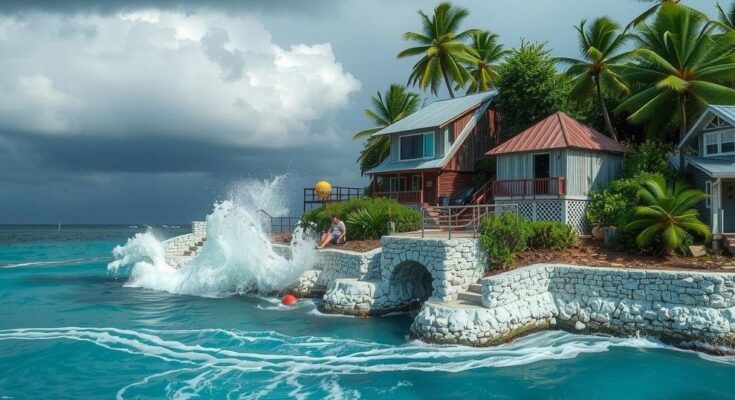Cyclone Chido ravages Mayotte with winds over 225 km/h, impacting vulnerable areas. Simultaneously, a 7.3 magnitude earthquake strikes Vanuatu, causing landslides near shipping terminals. Both events reveal the increasing vulnerability of these regions to natural disasters.
Residents of Mayotte are currently grappling with the aftermath of Cyclone Chido, described as bringing “apocalyptic scenes” to the French Indian Ocean territory. This storm, the most severe in nearly a century, unleashed devastating wind speeds exceeding 225 kilometers per hour. Many of the worst-affected areas housed the most vulnerable populations, who lived in makeshift homes with sheet-metal roofing. The cyclone’s destruction is unparalleled, further exacerbating the region’s challenges.
In a different geographical context, the South Pacific nation of Vanuatu experienced a significant seismic event, as a powerful earthquake measuring 7.3 on the Richter scale struck off its coast. The earthquake triggered landslides, impeding access to vital infrastructure, particularly near the busy international shipping terminal. Authorities are assessing the damage in the wake of this dual crisis affecting the region.
Cyclone Chido has made history by being the worst storm to impact Mayotte in 90 years, a territory that is already prone to extreme weather events. Such cyclones frequently pose grave threats to low-income communities, where housing structures are inadequately equipped to withstand severe conditions. Furthermore, Vanuatu, situated in a seismically active zone, experiences frequent earthquakes, necessitating ongoing preparedness and resilience efforts against natural disasters.
The severity of Cyclone Chido in Mayotte highlights the vulnerability of impoverished communities amidst extreme weather events. Concurrently, the earthquake in Vanuatu underscores the seismic risks faced by such island nations. Together, these events illuminate the urgent need for improved disaster preparedness and response strategies to mitigate the adverse effects of natural calamities, particularly in regions that are prone to such challenges.
Original Source: www.ndtv.com




